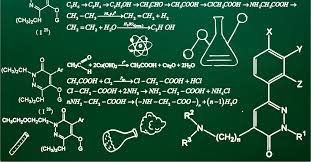Biochemical Chemistry: Exploring the Chemistry of Life
Welcome to our website, where we delve into the captivating world of biochemical chemistry. Biochemical chemistry, also known as biochemistry, focuses on the chemical processes and substances that occur within living organisms. Join us as we explore the fundamental principles, intricate pathways, and applications of biochemical chemistry in various fields.

- Biomolecules: Biomolecules are the building blocks of life, and they include carbohydrates, lipids, proteins, and nucleic acids. These molecules play crucial roles in biological processes such as energy storage, cell structure, enzyme catalysis, and information transfer.
- Enzymes and Metabolism: Enzymes are specialized proteins that catalyze biochemical reactions in living organisms. They regulate and facilitate metabolic pathways, which involve the conversion of one molecule to another. Metabolism is responsible for energy production, nutrient breakdown, and the synthesis of essential molecules.
- DNA and RNA: DNA (deoxyribonucleic acid) and RNA (ribonucleic acid) are nucleic acids that store and transmit genetic information. DNA carries the instructions for the development, functioning, and reproduction of organisms, while RNA is involved in protein synthesis and gene expression.
- Cellular Respiration and Photosynthesis: Cellular respiration is the process by which cells convert nutrients into usable energy (ATP), while photosynthesis is the process by which plants convert sunlight, water, and carbon dioxide into glucose and oxygen. These interconnected processes are vital for energy flow in ecosystems.
- Biochemical Pathways: Biochemical pathways are sequences of interconnected chemical reactions that occur within cells. Examples include glycolysis, the Krebs cycle, and the electron transport chain in cellular respiration. Understanding these pathways is crucial for unraveling complex cellular processes and developing therapies for diseases.
- Biochemical Analysis: Biochemical analysis involves the detection, quantification, and characterization of biomolecules and their interactions. Techniques such as spectrophotometry, chromatography, electrophoresis, and mass spectrometry are used to study the structure, function, and dynamics of biochemical molecules.
- Applications of Biochemical Chemistry: Biochemical chemistry finds applications in various fields, including medicine, pharmaceuticals, agriculture, environmental science, and biotechnology. It contributes to the development of drugs, diagnostics, biofuels, genetically modified organisms, and bioremediation strategies.
At our website, we explore the intricate world of biochemical chemistry, unraveling the chemical processes that drive life. Join us as we delve into the realm of biomolecules, enzymatic reactions, cellular metabolism, and the applications of biochemical chemistry in diverse scientific and technological domains. Welcome to a place where biochemical chemistry unlocks the secrets of life and inspires innovations for a better future.

